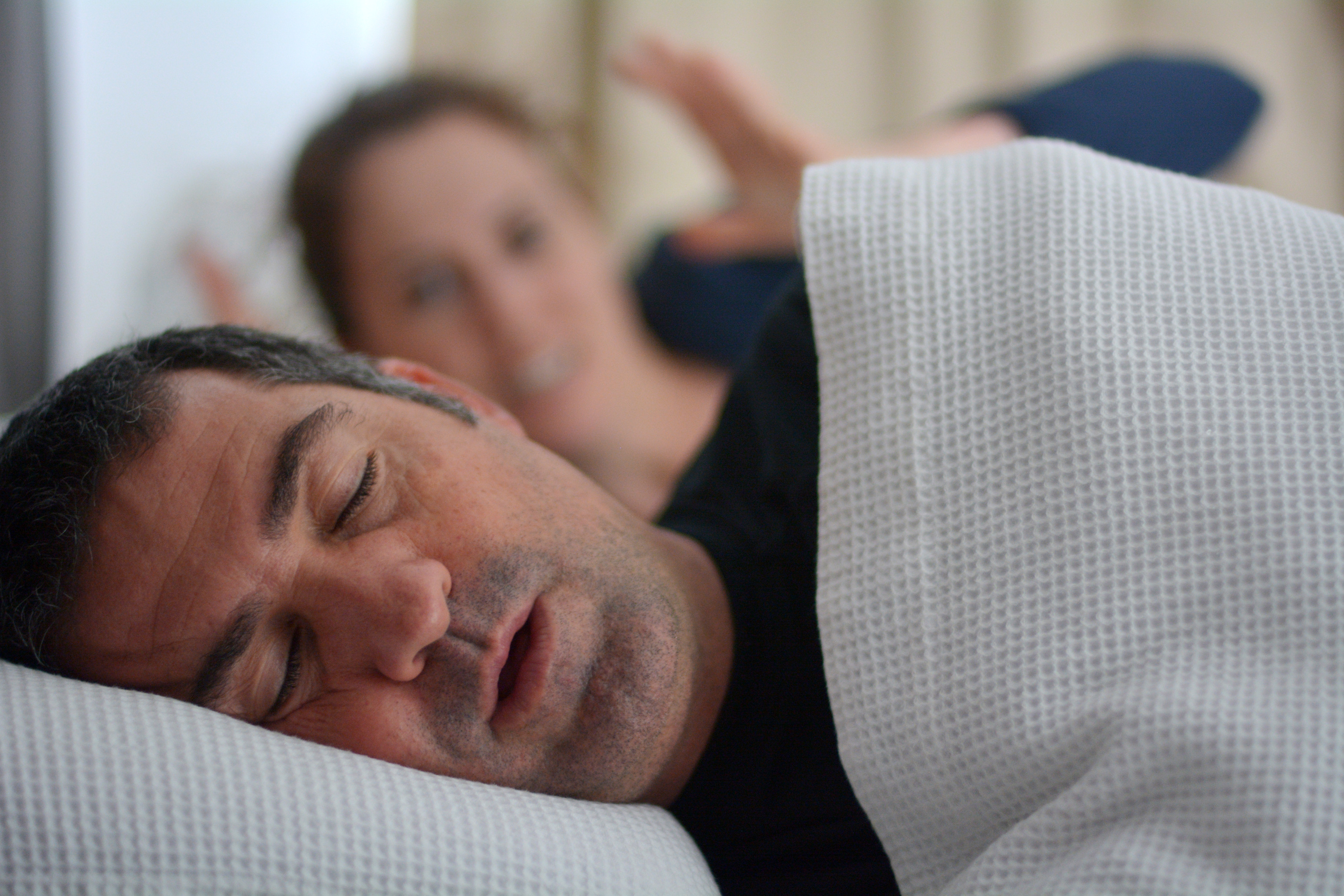Most people snore occasionally in their lives, but not everyone does it on a regular basis. According to the American Sleep Association, three out of ten women snores compare to four out of ten men. It can vary from mildly to severely irritating to those sharing a home with the snorer, as their own ability to fall asleep or stay asleep declines significantly. In addition, the person doing the snoring can also suffer negative health effects, if there is something more serious going on. So, if you snore regularly, it is something that you should speak to your physician about, especially if you find that you are often still tired after a night sleep.
What Causes People to Snore?
Snoring occurs when the air that flows through your nose and mouth are obstructed and the airways are narrowed, resulting in the soft tissues of your nose and throat vibrating and making loud noises. There can be many physical reasons for snoring, including nasal passages obstructed by nasal polyps, or when the throat and tongue muscles relax, and the tongue falls back into the throat. People with enlarged adenoids and tonsils often snore too, as do those under the influence of alcohol or certain medications. People who are overweight are more at risk of snoring and having sleep apnea.
Sleep apnea can result in a poor sleep and fatigue the next day. In many cases people with sleep apnea require medical attention, and possibility the need for a CPAP (Continuous Positive Air Pressure) mask to during sleep.
Techniques That May Help Reduce Your Snoring:
Stop Sleeping On Your Back
If you have always been a back sleeper, this may sound like something that is just not do-able. The best position is to sleep on your side. To make yourself even more comfortable, buy a body pillow as this will allow you to position your arms and legs without twisting your spine.
Elevate the Head of Your Bed
You can raise the head of your bed a few inches by buying and using a wedge pillow. This can sometimes help to prevent the tongue from falling backwards into your throat as you sleep.
Speak to Your Dentist
A dentist can design an anti-snoring device to help you sleep better without snoring.
Limit Alcohol Consumption Before Bed
Limit alcohol consumption before bedtime.
Alcohol causes relaxation of the structures in your throat, and results in increased risk for snoring. Abstain from alcohol at least five hours before bedtime. If you are taking prescription medications, you should also speak to your doctor as certain ones (sedatives) can cause snoring.
Lose Weight
Being overweight does tend to increase your propensity for snoring. Losing weight has many other health benefits and should be considered strongly.
Take Care of Your Nasal Passages
This tends to help the snorer with clogged nasal passages. A salt-water rinse administered with a Neti Pot (Little teapot with long spout) is a great way to clean out stuffy nasal passages. You can also try nasal strips that help open your nasal passages.
Quit Smoking
It has been found that people who are smokers, snore more often. Second-hand smoke exposure also increases the risk of snoring. Smoking increases snoring because the smoke irritates the tissues in the upper airways of your body.
By: Ralph Hernandez

